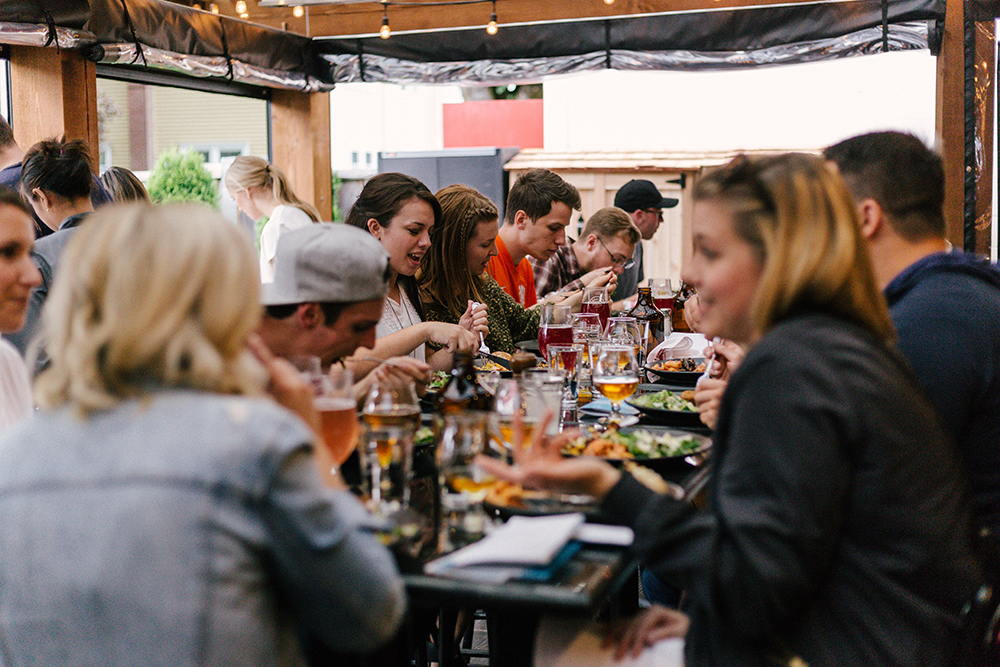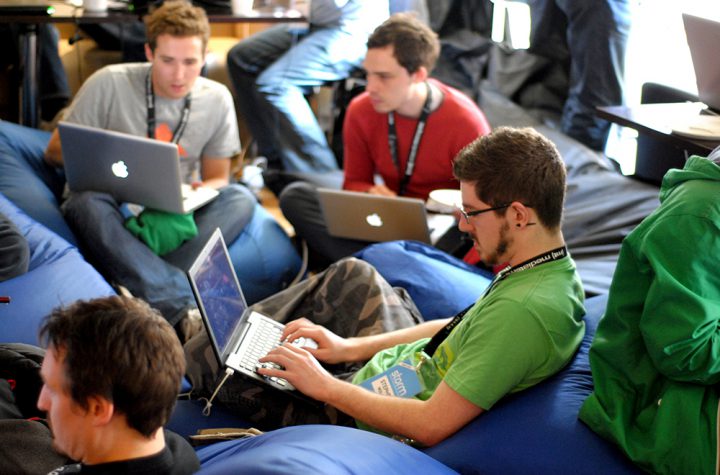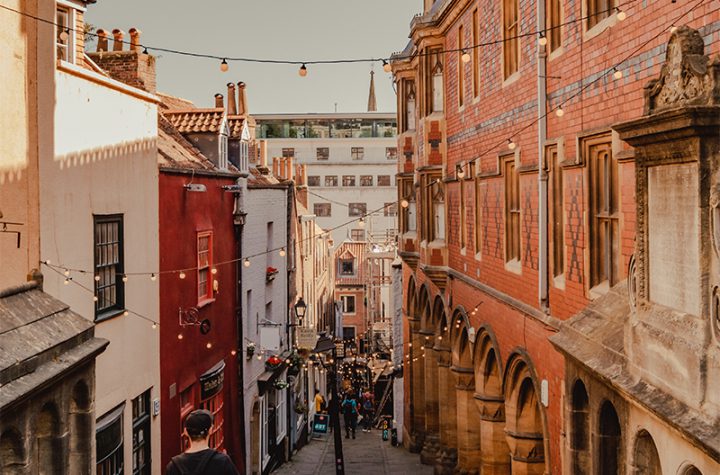
B.C. declared a state of emergency in March and shut down nightclubs, casinos and personal-service establishments such as hair salons a closed barbershop in Burnaby, B.C. seen here on May 6, 2020.
DARRYL DYCK/The Canadian Press
British Columbia will allow shops that closed because of the pandemic to reopen as early as May 19 with strict physical-distancing measures but a full return to the classroom for students wont occur until at least September and sporting events and concerts may be 12-to-18 months away.
The province says that a range of businesses and services that have been suspended because of the pandemic can reopen if new guidelines for health and safety are met. But B.C. has put the onus on individual organizations ranging from restaurants to hair salons and recreation facilities to implement, and publicly display, their plans to reduce the risk of COVID-19 spread.
The new normal of physical distancing will be in place for at least another year, Premier John Horgan announced on Wednesday. Were going to be proceeding carefully, bit by bit. If we lose this discipline, everything that weve worked for to this point will be lost.
Story continues below advertisement
Reopening society after COVID-19: Join André Picard on The Globes Instagram for a live Q&A
B.C. was the first Canadian province to identify patients sick with COVID-19, the disease caused by the novel coronavirus. It responded with a soft lockdown bringing the public along by sharing data and modelling, rather than strict orders. Since then, the pandemic has not affected the province as harshly as it has Quebec and Ontario.
B.C.s plan is in stark contrast with that of Quebec, which is embarking on an ambitious reopening strategy. Stores outside the Montreal region reopened Monday, and elementary schools and daycares outside of the city will reopen next week. Montreal reopenings were postponed by a week or two. The province has been hit hard by COVID-19, and Quebecs Director of Public Health, Dr. Horacio Arruda, has called the fast-paced plan a calculated risk.
Ontarios approach has been more cautious. Non-essential retail stores will open for curbside pickup next week, but public schools will remain closed until at least May 31. The province has set out benchmarks based on consistent decreases in the number of COVID-19 cases before some workplaces and public spaces open.
British Columbians have been asked since March to reduce their circles of contact but largely trusted to do so, and few classes of businesses were actually closed by order of Provincial Health Officer Bonnie Henry.
In its reopening plan, residents will be allowed to expand the number of people in their immediate circle of contact by mid-May, with small gatherings of extended family or close friends. The full return to classroom learning in the K-12 sector will not begin at least until September. Non-essential travel will still be discouraged at least until the summer.
The next phase, starting in June, could see fewer limits on travel, with overnight camping and the reopening of hotels and resorts, if transmission rates remains low.
The good news is were already at phase one. This is because B.C. did not completely shut down many jurisdictions are only now returning to the place that B.C. has been at for some time, the Premier said. But lets stay close to home. This is not the time for a road trip to another community for a hike, or a holiday.
Story continues below advertisement
The final phase of reopening is likely to be 12 to 18 months away, he said. That means an uncertain future for concerts, live professional sports, international travel, casinos and bars. Social gatherings of more than 50 people continue to be banned, and that limit is expected to be in place until a vaccine is developed and has been broadly distributed, or community immunity has been achieved, or a broad, successful treatment is found.
On Monday, Dr. Henry said the provinces health care system can now handle a cautious restart to business and social activity because those measures have reduced the rate of transmission. The current restrictions have brought society down to about 30 per cent of its normal day-to-day interactions. If that level of interaction is doubled, the rates of critical-care cases related to the coronavirus are likely to stay manageable, according to the estimates released on Monday.
B.C. declared a state of emergency because of COVID-19 on March 18. It shut down nightclubs, casinos and personal-service establishments such as hair salons. It closed provincial parks and suspended classroom instruction in the Kindergarten-Grade 12 school system, but thousands of students are in school because children of essential-service workers are still eligible for care.
B.C. is now developing plans that would allow some more students in schools in the coming weeks. But it is still expected to provide remote, online learning into the next school year.
However, the list of essential services is long, and B.C. did not shut down the economy to the same extent as Alberta, Ontario and Quebec. Construction, manufacturing and resource extraction continue. Essential services range from direct-to-public health services, medical labs and pharmacies to establishments engaged in the retail sale or provision of food, pet or livestock supply, liquor, cannabis and any other household consumer products.
The province has cancelled roughly 30,000 scheduled surgeries to increase hospital capacity, although there are currently fewer than 100 people in B.C. hospitals who are sick with COVID-19, the disease caused by the coronavirus. A plan to begin rescheduling those surgeries will be announced on Thursday.
Story continues below advertisement
Val Litwin, president and CEO of the BC Chamber of Commerce, welcomed the reopening strategy, saying entrepreneurs have been eagerly awaiting guidelines around how to get back to business safely.
Its practical, its safe, its evidence-based and entrepreneurs are ready to do their part for a safe recovery,” he said. “And what were seeing here are some very clear parameters and guidelines around how business is going to plot their way back to opening up again.
Mr. Litwin said one guideline that jumps out to him is that there will be absolutely zero tolerance around any flu-like symptoms at the workplace.
He said that although for lots of business owners the reopening announcement seems to be the proverbial light at the end of the tunnel, for some entrepreneurs it will clarify for them whether they are able to reopen.
Ian Tostenson, president and CEO of the BC Restaurant and Foodservices Association, said the government and its regulator, WorkSafeBC, have been supportive of the associations proposal for reopening, and that he hopes the workers compensation organization will approve it.
He said individual operators will have to adapt the plan to their own operations, and he hopes restaurants will be reopening by June 1. We have a lot of work to do, Mr. Tostenson said in an interview. Mr. Tostenson said he expects most restaurant operators are eager to get back into the game and open again.
Story continues below advertisement
With reports from Xiao Xu and Ian Bailey in Vancouver
We have a weekly Western Canada newsletter written by our B.C. and Alberta bureau chiefs, providing a comprehensive package of the news you need to know about the region and its place in the issues facing Canada. Sign up today.





More Stories
The South Australian government has promised to deliver the “biggest hit of economic adrenalin in South Australian history” in Tuesday’s budget.
Boris Johnson will proceed with his controversial Brexit bill despite US president-elect Joe Biden having previously warned the UK over the draft legislation.
Singapore-based Nektar.ai, a productivity platform for sales teams, has raised $2.15 million in seed funding. Founded earlier this year, Nektar has been working in stealth mode with five companies, and has plans for an early adopter release before a public la…